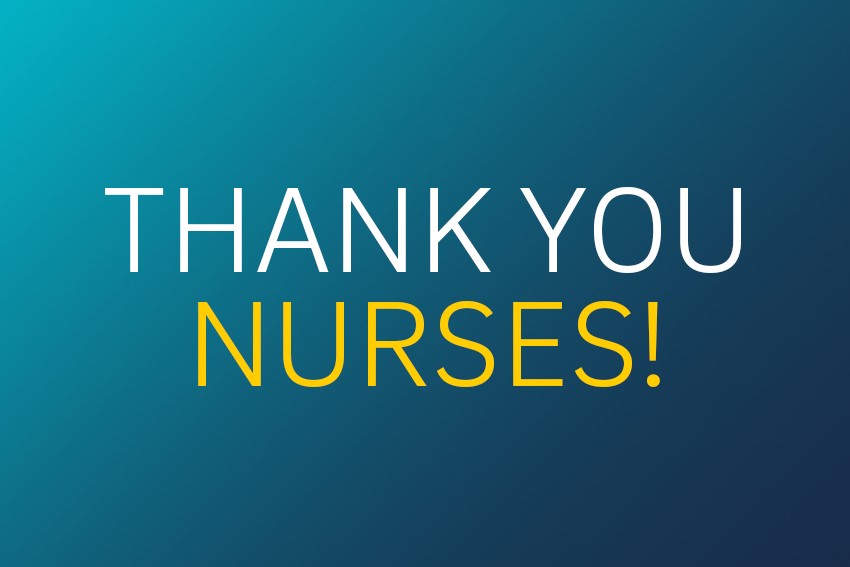
If you or a loved one has ever been a patient in a hospital setting, you know the vital role of nurses in the healthcare system is to provide essential care and support to patients in various settings. Their dedication, hard work, and compassion help to improve patient outcomes and quality of life. Despite the long hours, physical and emotional demands, and often stressful working conditions, nurses show unwavering commitment to their patients, families, and communities.
Thanks in part to the growing aging population, career opportunities in healthcare are abundant. In fact, a U.S. Bureau of Labor Statistics report from September 2022 projected the healthcare and social assistance sector would add “about 2.6 million jobs from 2021 to 2031,” the most of any sector.
To help us understand the outlook of this burgeoning industry in more tangible terms, we spoke with two Extended Studies healthcare program professors: Dr. Molly Bauer, professor of Emergency Department Nursing Parts I and II courses, and Tonya Soroosh, lead instructor for the Case Management Intensive Certificate program.
With several decades of healthcare experience between them, these industry experts are using their nursing know-how to shape the next generation of healthcare professionals through continuing education at UC San Diego Division of Extended Studies.
Dr. Molly Bauer is a professor of Emergency Department Nursing for the healthcare program at UC San Diego Division of Extended Studies. In Emergency Department Nursing Parts I and II courses, Dr. Bauer teaches students about the priorities of care in the assessment of emergency patients and the types of medical and psychological emergencies frequently found in the emergency department.
In addition to her role as a program instructor, Dr. Bauer also works as a Network Trauma Educator for HonorHealth in Arizona, where she serves three level-one trauma centers in the Phoenix area by providing training for both new and seasoned trauma nurses.
“The emergency department is a dynamic, ever-changing place. Emergency Department Nursing Parts I and II courses are designed to promote learning centered around caring for emergency department patients. They help students grow in critical thinking, time management, team communication, conflict resolution, prioritization and overall professional behavior.”
To hear more from Dr. Molly Bauer, check out her full interview below.
Tonya Soroosh is the lead instructor for the Case Management Intensive Certificate program for Extended Studies. In the program, instructors share evidence-based direction and insights into the practice of case management that support learning through relevant and action-oriented content and activities that all case managers should know in the complex managed care system of today.
As lead instructor, Soroosh helps students gain an understanding of the specialty area of case management and develop a better awareness of what it means to be a case manager. “We focus a lot on patient advocacy—how to problem-solve and innovate to elevate the level of patient care. Case managers are often seen as the ‘logistics people,’ the ones who pull all the strings together for the patients and their families,” said Soroosh.
For Soroosh, becoming a nurse happened “kind of by fluke.” She wasn’t sure where she wanted to go in her career but always had an admiration for nursing, and after 25 years, she hasn’t looked back. She also works as System Director of the Integrated Care Management team at Sharp Healthcare in San Diego.
Soroosh underscored current and future demand for case managers, saying, “As federal and state governments look for ways to drive optimal outcomes at the community level, case management will continue to join in and even lead those discussions because they work so closely with the patients and their families along the continuum of care. The Case Management Certificate program promotes exactly what the government is looking toward as far as community-based solutions.”
For anyone thinking about a career in healthcare, Soroosh says to go for it. “Not only is this career path rewarding, but I also think you’ll find that the opportunities are immeasurable,” she said. “There is a great sense of pride that comes from getting to work with people when they are at their most vulnerable. It’s a privilege.”
To hear more from Tonya Soroosh, check out her full interview below.
Enrolling in a healthcare continuing education program can expand your knowledge of industry trends, help you acquire new skills, and provide networking opportunities with employers and colleagues. UC San Diego Division of Extended Studies offers a variety of learning formats to fit individual organizational needs, including certificate programs, onsite group trainings, accelerated programs, and online courses.
Healthcare education opportunities are available through UC San Diego Division of Extended Studies across a range of categories, including Clinical Trials & Regulatory Affairs, Counseling & Behavioral Sciences, Healthcare General Education, Healthcare Informatics, Healthcare Technology, Lactation & Perinatal Education, Medical Coding & Revenue Cycle, Medical Communication, Medical/Clinical Laboratory Science, Nursing & Clinical Professionals, Nutrition, and more.
–
To learn more about healthcare education opportunities available through UC San Diego Division of Extended Studies, please visit the
program website.
###